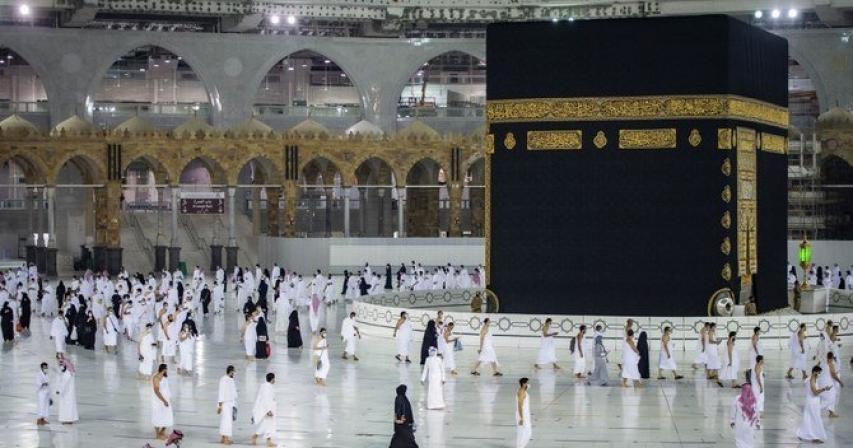Malaysia welcomes Saudi decision to increase Hajj quota
- 3 years ago

Malaysian officials have welcomed Saudi Arabia’s decision to increase the Southeast Asian nation’s annual Hajj quota by 10,000 following Prime Minister Muhyiddin Yassin’s official visit to Riyadh.
Muhyiddin concluded his four-day trip to the Kingdom on Wednesday. Speaking to Malaysian reporters at the end of the visit, the prime minister said he had requested an increase in the quota during a meeting with Crown Prince Mohammed bin Salman, at whose invitation he arrived in Riyadh.
The current Hajj quota for the country of 32 million, where 60 percent are Muslims, is 31,600.
Muhyiddin said that the increased quota would apply when the Hajj situation returns to normal after the coronavirus pandemic.
The Malaysian Hajj Pilgrim Fund Board (TH) lauded the Kingdom’s decision and the prime minister’s efforts, saying that it would reduce the waiting time for Malaysians to perform pilgrimages and provide more opportunities for them in the future.
“TH will be making preparations covering multiple aspects domestically and in the holy land to ensure a seamless implementation, providing Malaysian Muslims the ease to duties to perform the fifth pillar of Islam,” the board said.
During Muhyiddin’s visit, besides the Hajj quota increase, three agreements were signed by Saudi Foreign Minister Prince Faisal bin Farhan and his Malaysian counterpart Hishammuddin Hussein.
The first agreement was on the establishment of the Saudi-Malaysian Coordination Council, the second agreement dealt with streamlining the arrival of pilgrims, and the third was a memorandum of understanding in the field of Islamic affairs.
Political analyst Azmi Hassan from the Technology University of Malaysia said the prime minister’ visit, and especially the increased Hajj quota, were good developments for Saudi-Malaysian ties.
“This is indeed happy news over here because cordial relationships with (the Kingdom) is viewed as very critical by Muslim Malaysians, so the visit will no doubt put the relationship on the right track,” he said, adding that some decisions of the previous Malaysian government, such as the cancelation of the King Salman Center for Global Peace in Kuala Lumpur, had soured the ties.
He added that Saudi Arabia is Malaysia’s major trade partner in the Gulf, whose post-pandemic recovery offers opportunities for the Southeast Asian nation’s exports.
“There is mutual interest in this regard, so the benefits of the visit are not only confined to the economic sector but more importantly geopolitics of both nations,” Hassan said. “The visit will rekindle the good relationship between the nations especially when both Riyadh and Malaysia who are influential in the Muslim nations.”
For Prof. James Chin, director of the Asia Institute at the University of Tasmania, Muhyiddin’s visit was especially important for the prime minister himself to shore up his credentials as the country’s leader, since he has been facing political troubles at home.
“He needs to show he is prime minister material, and needs to visit a foreign country to show personal standing,” he said.
Comments